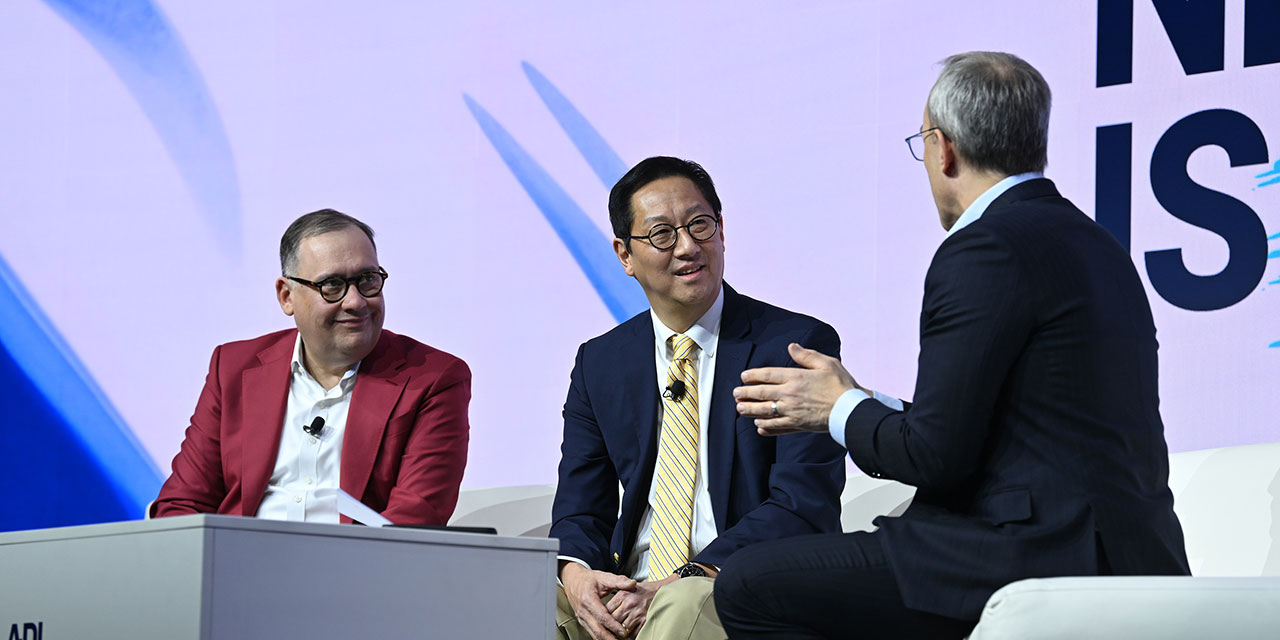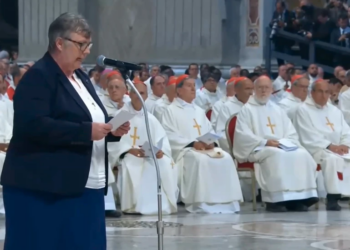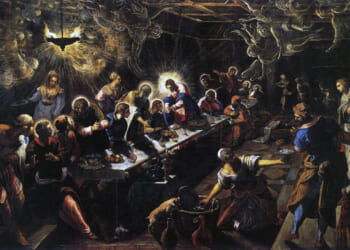
Controversy surrounds the nomination of Santa Ono as the next president of University of Florida. Supporters believe that Ono, who previously served as president of the Universities of British Columbia and Michigan, would boost prestige in the Sunshine State. But revelations about Ono’s record of enthusiastic support for every fashionable left-wing cause have raised troubling questions about the search process and his ideological compatibility.
Noah Alter, a student at University of British Columbia while Ono was president, reveals another troubling aspect of Ono’s record: censorship. Alter describes how Ono repeatedly attempted to silence campus dissenters, deplatform conservative speakers, and bury free speech in technicalities. As the Florida Board of Governors prepares for a final vote, it should closely consider this account and ask itself whether Ono truly represents the university’s—and the state’s—values.
–Christopher F. Rufo
Finally, a reason to check your email.
Sign up for our free newsletter today.
To whom it may concern,
It has recently been brought to my attention that Santa Ono is being considered for president of the University of Florida. As a long-time free-speech activist, I am very familiar with Florida’s commitment to freedom of speech in education. I attended the University of British Columbia (UBC) between 2016 and 2020, during which time Ono served as president and vice chancellor. Beginning in 2018 and until I graduated, I was the president of the UBC Free Speech Club.
I feel compelled to write this letter because, based on my own experience, I believe that Ono’s past actions demonstrate a clear hostility toward free speech, and that his record does not correspond with the values of the University of Florida.
When I arrived at UBC in September 2016, the situation for freedom of speech on campus was not great. The school’s student union prohibited a student club dedicated to men’s issues on the ground that such a club already existed—a “feminist” men’s group called “Healthier Masculinities,” which describes itself as “working from an anti-oppressive and intersectional lens” and “acknowledging privilege and positionality.” Despite protest, the student union repeatedly rejected the alternative men’s club, and the administration, under President Ono’s leadership, never to my knowledge stepped in to publicly demand that the student union treat all students equally.
This active discrimination against men went on for years. By 2019, it had escalated to the point that the student union temporarily banned a man trying to protest what he called anti-male bias at UBC from entering the AMS Nest (the student union building on campus). Though a student union subcommittee later reversed this ban, at no point to my knowledge did President Ono’s administration lodge a public protest or even publicly express concern for the student’s freedom of speech.
It was not only activists for men’s issues who faced harassment from the student union. After I became president of the UBC Free Speech Club in May 2018, we tried to bring Ben Shapiro, a Florida resident, to speak on campus on Halloween. Throughout the process of arranging the visit, the student union pressured our venue to cancel the event and even called me in for a meeting to try to pressure us to call it off. When we made it clear that we would not cancel, the student union released a public statement condemning the event, encouraging students to reach out to campus security and the Sexual Assault Support Centre in response to it.
Though the university did issue a statement noting that it placed “paramount value on the free and lawful expression of ideas and viewpoints,” it added a line at the end to the effect that “with respect to any concerns someone might have about the content of Mr. Shapiro’s remarks, we note that hate speech is governed by the Criminal Code of Canada and specific concerns about it should therefore be directed to the local RCMP detachment.” The statement included nothing about the repeated threats of violence directed toward us by other UBC students, which caused our security fees to balloon and eventually accounted for more than half the event’s cost. It seemed to us that for the administration, informing students that they could report Shapiro to the police for “hate speech” was more important than addressing and condemning the real threats of violence directed at us. And this was one of our more successful events.
The next year, we invited Yasmine Mohammed to speak on campus. Mohammed is a Canadian-born ex-Muslim who escaped an abusive forced marriage with an al-Qaida terrorist and now speaks about her experiences as a human rights activist. Though Mohammed is a UBC alum, the administration piled on “security fees” in a way that seemed to us designed to make the event unaffordable. The university did not provide us details on any of the “threats” it allegedly received to justify the repeated security-fee increases. Fortunately, we had prepared for just this scenario, and the event proceeded as planned.
Later that year, however, we attempted to bring conservative activist Andy Ngo to campus after violent Antifa agitators in Portland, Oregon, attacked him. We were again prepared for the university to raise security fees incrementally on the basis of unspecified “threats.” But we were not prepared for the administration, under President Ono’s leadership, to cancel the event unilaterally and without compensation for our sunk costs. The event’s title? “Understanding Antifa Violence.”
UBC offered no explanation for its decision and rebuffed our threats of legal action. In a response on which Ono was copied, the university noted that “Mr. Ngo has been the target of violence in the past” and that therefore “the risk to persons and property was too high.” In other words, the administration would allow violent Antifa activists to shut down free speech at UBC. Canada’s Justice Centre for Constitutional Freedoms described it as “the worst examples of free speech violations” on a Canadian university campus in 2019. We responded by suing the university—a case that we are still fighting today.
Ono is now trying to project an image as a defender of freedom of speech and the rights of all students to express their viewpoints. These events paint a very different picture, one of an administrator who stood by while students supporting freedom of speech were subjected to harassment, violent threats, unjustified “security fees,” and public condemnation.
I’ll leave you with one final story. Apart from running the UBC Free Speech Club, I also served as Treasurer of Chabad at UBC, a Jewish organization that promotes religious observance. In that capacity, I was once sent to represent Chabad in a meeting with Ono and representatives of other Jewish campus groups to discuss a string of anti-Semitic graffiti incidents at UBC.
At the beginning of the meeting, Ono showed us a scrapbook featuring pictures of him with notable Jewish people like Deborah Lipstadt and Alan Dershowitz. But later, he told us he couldn’t issue a public condemnation of the graffiti because he would face criticism from the Free Speech Club. When I pointed out that the Free Speech Club would not oppose condemnations of graffiti (he wasn’t aware I was a member), he hastily offered another excuse. In other words, the only time I’ve ever heard Ono defend free speech, it was to justify his failure to condemn anti-Semitic graffiti.
It is vitally important for the University of Florida to consider this information before hiring Ono as its next president. He may claim to be committed to free speech, but his record at UBC suggests otherwise.
Thank you for taking the time to read this.
Sincerely,
Noah Alter
Photo by Bryan Bedder/Getty Images for Anti-Defamation League
City Journal is a publication of the Manhattan Institute for Policy Research (MI), a leading free-market think tank. Are you interested in supporting the magazine? As a 501(c)(3) nonprofit, donations in support of MI and City Journal are fully tax-deductible as provided by law (EIN #13-2912529).
Source link
















